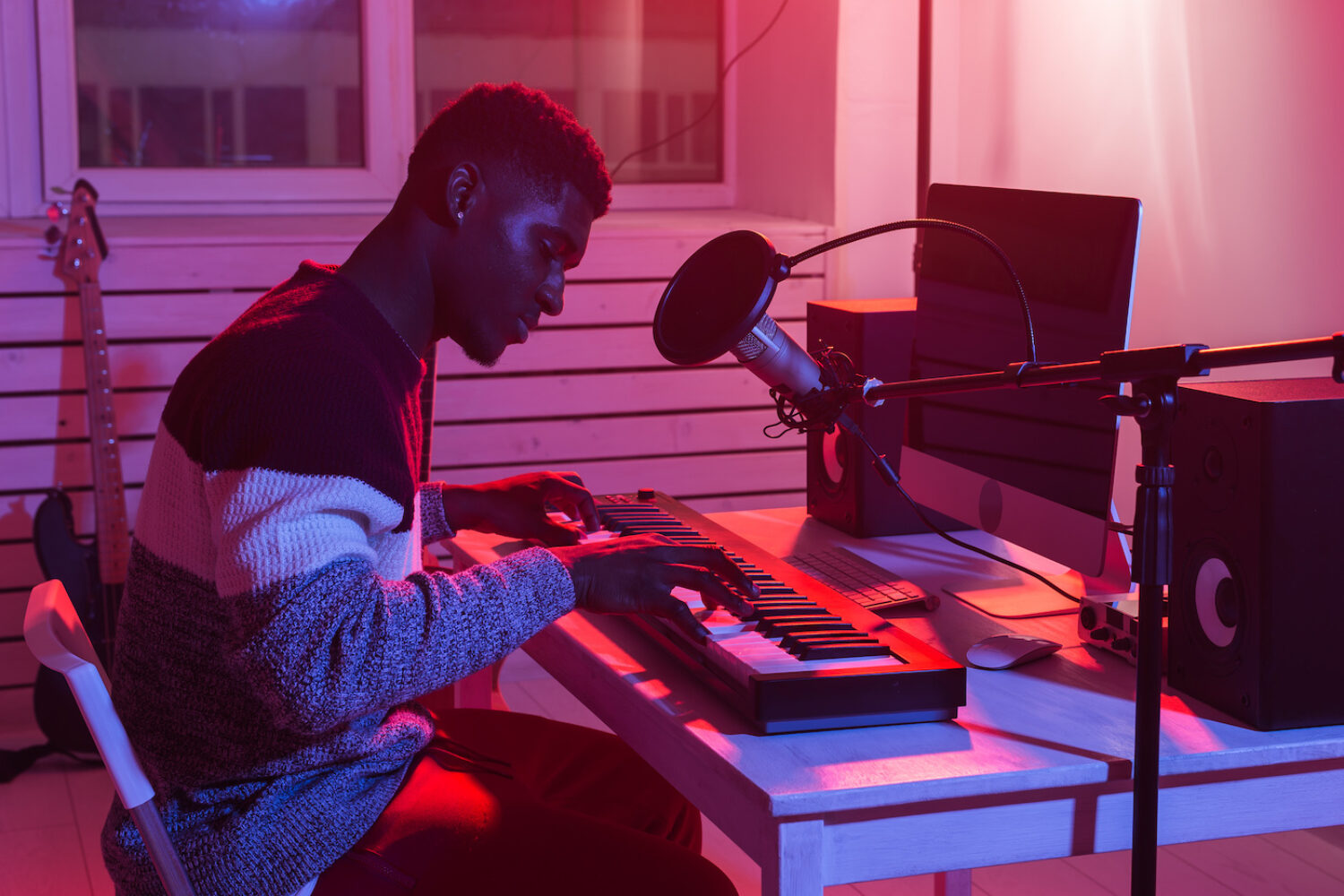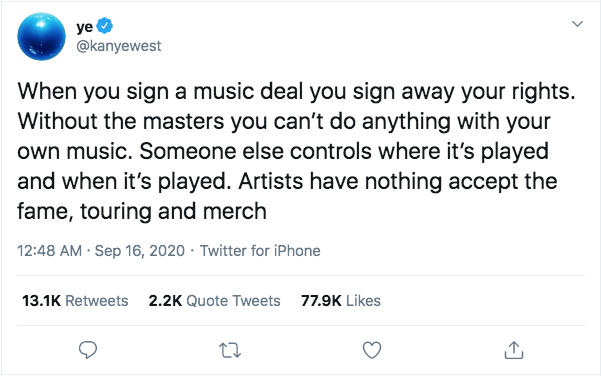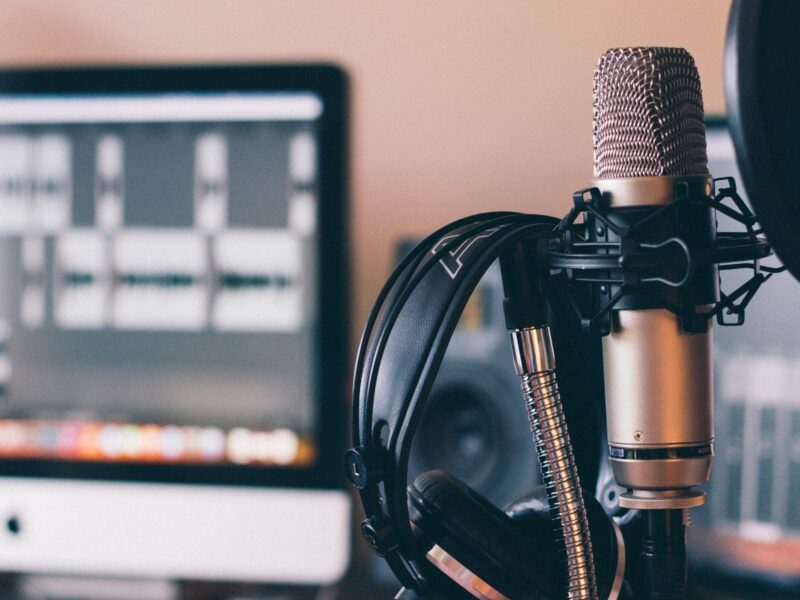
Download Your FREE 22-Day Single Release Plan
What Does It Mean To Own Your Masters In Music?
Before we get into the depths of what owning your masters actually means, record labels, music publishing, artist rights, and other music industry terminology, let's break things down a little bit.
This stuff can get pretty confusing if you are learning about it for the first time. Let's learn about what master recordings actually are.
What Are Master Recordings?
Masters, or master recordings, are the original specific sound recordings of a song.
The term as it's used today refers to the versions of your music that are released publically and put out on streaming services such as Spotify, Tidal, Apple Music, etc.
Originally the word master referred to the master tape or audio source from which all the vinyl, cassettes, and CDs were made for sales and music distribution.
If you're into old-school photography, think of the masters as you would the negatives of your photos.
Publishing Rights vs. Master Rights
Don’t get confused by terminology: publishing rights and master rights refer to completely different things and are treated entirely separately when it comes to ownership, royalty payments, and legal disputes.
The master is the sound recording of the song and the focus of this article. This is distinct from publishing, which corresponds to the composition, or the song itself: the music and the lyric.
Owning publishing rights is a completely different kettle of fish to owning master rights.
Why Own Your Masters?
If you own your masters, this means you have the legal right to make money out of your recordings through collecting royalties and sync licensing your recorded music to film, TV, adverts etc.
Any public use of the recording, be it a CD or vinyl sale, a Spotify stream, film sync; all of these involve the recording being licensed by the holder of the master. Not holding the masters means you forfeit control over where the recordings are used, and also not being able to reap the full amount of royalties from use of the masters.
Traditional Record Label Deals
When it comes to traditional record label deals, the label pays for the music to be recorded, distributed, and promoted and gives the artist an advance (similar to a loan) on future royalties.
In return for all this short-term excitement, the artist signs away the master rights to the recordings, meaning the label then owns the masters for a given period of time, which is often in perpetuity (meaning forever!). In this situation, the labels hold onto the masters forever, irrespective of whether the artist's debt to the label is paid off.
With these traditional deals, often the artist will only get a small 15% royalty cut, while the label gets 85%. It is frequently the case though that labels find ways to further minimize the cut that the artist receives. There are lots of additional costs that are incurred in the making of the recording, and these are regularly seized upon by the label and billed to the artist.
The advance costs have to be completely recouped by music sales/streams/licensing before the artist starts to get paid the full rate for their share of the royalties.
This can take a long time when you factor in ALL the additional costs.

Say the label throws a party. A big glitzy over-the-top messy shindig to toast the completion of the record deal. Maybe another party later to celebrate the release of the first album. The trouble is, it’s all at the artist’s expense; that massive bar tab is going to be paid off by the money recouped by sales and streams of the master.
Every contract is different, but labels still tend to pitch harrowingly outdated clauses to artists. For instance, still often included today - even in this age of streaming and significantly reduced physical sales - is a 25% fee for packaging and production. Also still making the contractual rounds is a 10% breakages fee (a hangover from the days of fragile vinyl being transported en masse).
Neither of these things are as relevant now as decades ago at the time when these clauses became industry-standard devices, but, antiquated as they are, they remain in black and white on many a credulous artist’s contract.
For this reason, it is imperative that you have a good lawyer on your side to check your contracts before you sign anything.
In the past, before digital music platforms emerged, it was difficult to promote your music. Musicians basically had no choice but to rely on record labels to get their music heard, be it through airplay or distribution to retailers. It was in this climate of artist dependence on the physical media/record label contacts infrastructure that labels could strike record deals with artists that exploited them financially.
Today, the significance of the label has decreased and so no artist should walk into a contract that takes undue control of their profits. Artists don't need a label to build a fanbase - the balance of power has shifted away from the gatekeepers towards the creators.
Case Studies
Prince’s remark in a 1996 issue of Rolling Stone magazine ‘If you don’t own your masters, your master owns you’ sums up the exploitation of artists by labels through control of the master recordings.
Over 25 years later, it’s just as important as ever for artists to own their masters, and a number of high-profile musicians have recently acted upon and spoken publicly about the issue.
Taylor Swift Re-recording
The Taylor Swift debacle is an interesting case study in arguments over the ownership of masters. Her first record label, Big Machine, was sold off to Scooter Braun -- the manager of, among others, Justin Bieber and Ariana Grande -- a man whom Swift has accused of bullying. Braun now profits and has control of her back catalog.
In order to address Braun's control over the masters of her older music, Swift has started to re-record her first six studio albums; in doing so she creates new masters over which she has full ownership and the ability to license for commercial use.

Kanye West
Kanye West's mission to reclaim his masters has attracted a lot of media attention. He has publically ranted against Universal Music Group and its control over his first six albums, and has even gone so far as to post his original recording contracts on Twitter. They show that he was paid a number multi-million dollar advances - in return - the label owns the masters 'throughout the world and in perpetuity'.
Now though, Universal are reluctant to offer him a price for him to buy back his masters, as they know there more money for them to be made from holding onto them.
West's pledge to do 'everything in [his] legal power and use [his] voice until all artist contracts are changed starting with getting my masters for my children' might spell a change in the use of these outdated contracts, or at least illuminate the situation for future artists who are yet to sign a record deal.

Own Your Master Recording
Owning your masters gives you control over your music. Owning them outright is a good investment on future royalties, and avoiding advances from labels in return for selling your masters means no huge debt is being racked up.
As we've seen from Taylor Swift and Kanye West, once you fork over the rights to your masters to a label, it can often be very difficult to take control of the masters back.


